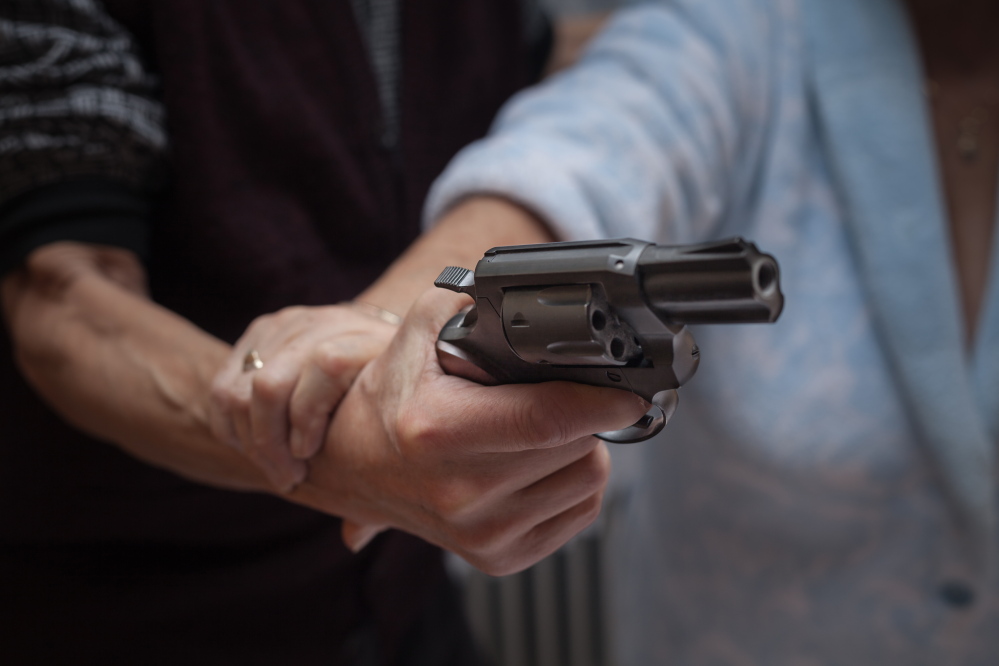Year after year, Maine’s murder rate is among the lowest in the country. But there’s one crime-related category in which we consistently outpace many other states: Over half of the homicides here each year are related to domestic violence. The national average is around 30 percent.
Given that the presence of firearms vastly increases the risk that a domestic violence incident will turn deadly, it’s good news that two legislators have proposed bills this session to keep firearms out of the hands of the people likely to misuse them. But without more fundamental changes to state gun laws, these proposals will only be able to address part of the problem.
Sponsored by Rep. Mark Dion, D-Portland, L.D. 1100 would allow either police or relatives to seek a restraining order against people deemed likely to use a gun against themselves or others, taking into account such factors as a history of violating protection-from-abuse orders or a felony arrest record.
The individual would have to surrender firearms to a law enforcement official for 21 days. Before the order expires, the court must hold a hearing – during which the gun owner can speak on his or her own behalf – to determine whether a one-year gun violence restraining order should be issued.
Although L.D. 1100 is titled “An Act to Expand Options for the Prevention of Domestic Violence,” it may be more effective as a means of preventing those in crisis from harming themselves. The impulse to take one’s own life is a fleeting one; enabling family members to step in and keep gun owners from accessing their weapons until that impulse passes could well save lives.
For domestic abuse victims and their families, however, L.D. 1100 could have unintended consequences. As written, the proposal would allow law enforcement officers to petition for gun violence restraining orders.
But the officer wouldn’t have to get input from the victim before seeking the order – thus taking the person’s voice out of the decision-making process, even though the victim is the one who knows whether removing guns from the home would actually escalate the risk of being assaulted. The bill would be more beneficial if it were amended to address these concerns.
Another measure related to intimate-partner violence – L.D. 600, sponsored by Rep. Richard Pickett, R-East Dixfield – would make it illegal for people to own a gun if they’ve been convicted of a domestic abuse misdemeanor, such as stalking or terrorizing.
Although that’s certainly a worthy goal, neither this bill nor L.D. 1100 would stem the tide of weapons purchases in private sales. Unlike federally licensed firearms dealers, private sellers don’t have to check whether the buyer is barred from owning a weapon – meaning that an estimated 40 percent of gun sales happen without a background check. (And Maine law doesn’t call for tracking who owns firearms or how many they have.)
It’s heartening to see two Maine legislators – both of whom have extensive law enforcement backgrounds – taking seriously the safety of domestic violence victims. But while these two bills take steps to limit abusers’ access to firearms, Maine won’t make meaningful progress toward this goal until lawmakers take more substantive action.
Copy the Story LinkSend questions/comments to the editors.



Success. Please wait for the page to reload. If the page does not reload within 5 seconds, please refresh the page.
Enter your email and password to access comments.
Hi, to comment on stories you must . This profile is in addition to your subscription and website login.
Already have a commenting profile? .
Invalid username/password.
Please check your email to confirm and complete your registration.
Only subscribers are eligible to post comments. Please subscribe or login first for digital access. Here’s why.
Use the form below to reset your password. When you've submitted your account email, we will send an email with a reset code.